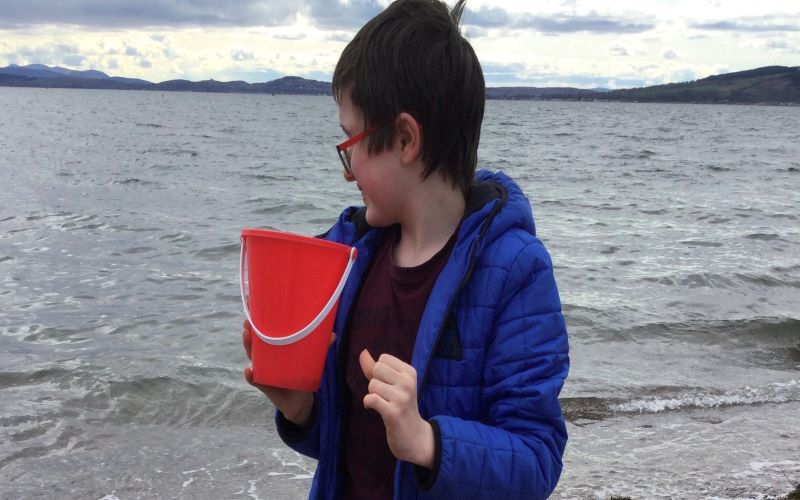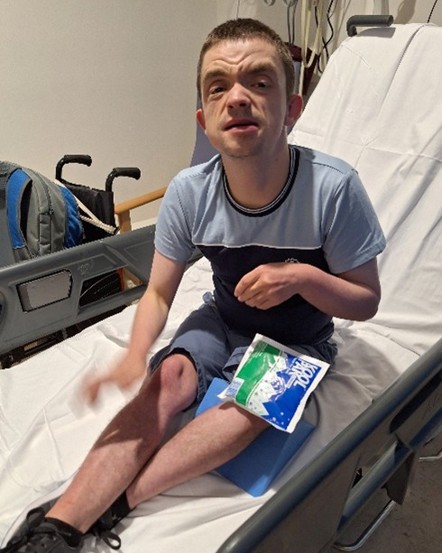How attitudes change depending where people meet us

Miriam Gwynne
Full time mum and carer for two truly wonderful autistic twins. I love reading, writing, walking, swimming and encouraging others. Don’t struggle alon...

I watched closely as my 12 year old son carefully chose some more peddles from the stony beach, put them in his beloved red bucket, then walked a few steps to the water and dropped them in one by one.
He was always within reach, smiling, laughing and making his usual happy noises.
After a few minutes I noticed a couple walking towards us as they walked hand in hand along the beach.
As they got closer I noticed they moved off course slightly and I assumed, like so many do frequently, that they were trying to avoid us.
Instead they smiled at both my son and myself and even initiated conversation.
‘Lovely day for it isn’t it? He sure looks like he’s having fun there!’
I replied briefly back as they nodded, smiled and walked on.
No stares. No questions. No hint that anything was different about my child.
Later the same day I took my son to the park. It was a very different experience there.
While he struggled to navigate and climb equipment for children less than half his age I noticed other parents stare, younger children pull back and conversations get quieter.
My son was out of place, drawing attention and his noises and mannerisms made people very aware he was different.
Similar things happen in shops, in swimming pools, in shopping centres or restaurants.
People’s attitude to my disabled non verbal son seem to vary greatly depending where they meet him.
I often wonder if that’s down to how different my son appears to others in certain situations or how relaxed other people are depending on where they are?
Maybe the couple on the beach felt they could distance themselves naturally if they wanted to much easier, and less conspicuously, in the fresh air than they could in say a shop or cafe?
Or maybe my son’s behaviour on the beach mirrors more what other children might do there and therefore his disabilities aren’t as immediately obvious?
Would that same couple have been as friendly and chatty if they were on a bus and saw us as they were at her beach?
It’s hard to know really. I do often think in places like the park that still so many are influenced by others.
If one family beckons their child to move away from my son often others will copy. If one person in a restaurant stares then others sometimes do the same.
What happened at the beach that day should be so unremarkable, so everyday, that my mind saw no need to really remember it.
Sadly, for many families like mine everyday friendly encounters like that are still so rare that they are treasured for months and years to come.
One day I hope that the vast majority of interactions I have with others when I have my son with me are like that moment on the beach.
It shouldn’t matter where you meet my son, or anyone different for that matter, we should always smile, chat and see them as just as valuable and deserving as everyone else, whether that’s at the beach, at the park, in a shop or anywhere else.


